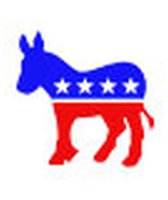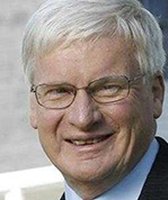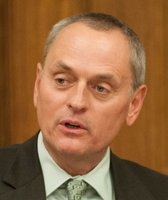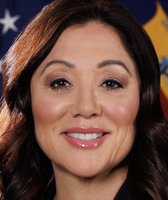Stand up for the facts!
Our only agenda is to publish the truth so you can be an informed participant in democracy.
We need your help.
I would like to contribute
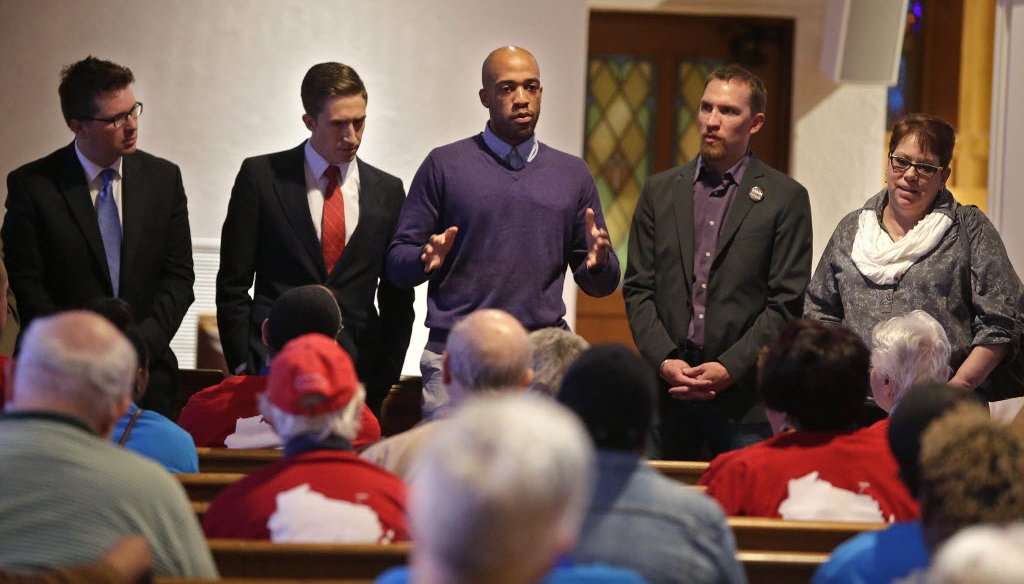
State Rep. Mandela Barnes, D-Milwaukee, talks about the legislative efforts on various issues important to the faith community, following a march to the Capitol for a lobbying day.
A powerful committee of state lawmakers dives deeper this week into votes on Gov. Scott Walker’s controversial state budget.
A flurry of decisions will come in May.
That’s our cue to roll out some recent PolitiFact Wisconsin fact checks and articles on the 2015-17 spending plan.
Republicans in control of both legislative chambers have signalled a willingness to make changes in Walker’s blueprint, especially around cuts in funding for local schools and the public university system.
Walker appears to have moved past an early dust up over his deletion of the "Wisconsin Idea" from the University of Wisconsin System’s mission.
Sign up for PolitiFact texts
His budget included language that sought to make the UW System mission more about meeting workforce needs than a "search for truth" or extending "knowledge and its application beyond the boundaries of its campuses."
We rated Pants on Fire a Walker claim that the language edits were the result of a "drafting error."
Walker’s administration had insisted to UW System officials on making the changes, and UW System officials had objected. Walker backed off the changes after criticism following the budget’s release.
How deep are cuts?
Observers have argued over how to describe the size of the Walker higher-education cuts.
The cut comes in a "general purpose" aid account, so critics note that account would drop by 13 percent under Walker’s plan.
Walker, meanwhile, has downplayed the UW System cuts -- $300 million over two years -- as just 2.5% of the total UW System operating budget.
Both numbers are true, but as we reported in February 2015, the $300 million is about 6 percent of the pot of money that UW officials can dip into to make up for reductions
Assembly Speaker Robin Vos, R-Rochester, said that Walker’s reduction is "about the size of the one" under Democratic Gov. Jim Doyle in 2003, but Democrats didn’t treat Doyle’s cut as so dire.
We rated that Mostly True.
Democrats did appear to lay off of Doyle’s UW cuts, which were very similar in size to Walker’s. But Doyle’s 2003 cut was the first significant reduction in state support in years, and Doyle -- unlike Walker -- allowed big tuition hikes to ease the 2003 budget cuts.
Tuition debated
Walker wants to freeze tuition for two more years, while some UW System officials want control of tuition rates.
We rated False Walker’s claim that under his budget, the UW System "will be much more affordable than just about any other campus in America" because "going forward we have a cap on it tied to inflation."
His evidence was current rankings, but they showed the state is neither high nor low for student costs. And the inflationary cap the governor mentioned was only a far-off possibility when he spoke.
Walker's original budget bill in February would have broken the UW System off from the rest of state government and given the new quasi-public entity and the Board of Regents the authority to set tuition starting in the 2017-'18 academic year after the proposed tuition freeze expires, the Journal Sentinel reported.
After GOP lawmakers raised concerns about those possible tuition hikes down the road, Walker in April amended his budget to propose limiting tuition increases in the UW System to the rate of inflation once the current tuition freeze expires.
Meanwhile, some lawmakers have said UW can make up for the lost aid by tapping reserves.
We rated Half True UW-Madison Chancellor Rebecca Blank’s statement that UW has "spent down reserves" as it was told to do two years ago and, facing new state budget cuts, has "no more reserves to spend down."
As directed by Walker and the Legislature, UW-Madison did tap reserves in 2013-15.
But Blank, objecting to even larger cuts in state aid now being proposed by Walker, went too far in saying UW-Madison has no reserves, given that, at a minimum, $54 million in "discretionary reserves" are available.
Other budget claims
We rated False a Democratic Party of Wisconsin claim that Walker’s proposed budget "would sell off Wisconsin’s state parks."
That’s not in the budget, though state officials are discussing the potential sale of naming rights as a way to derive extra revenue for the parks.
Also earning a False was a state legislator’s claim that beer drinking is not allowed in any Illinois state parks.
State Sen. Howard Marklein, R-Spring Green, made the claim while advocating for higher state parks’ charges for out of state residents.
But you can drink in more than half of the parks in Illinois.
Debt debate
Both parties have complained about the level of debt Walker proposes in his budget.
But Walker claimed that borrowing in his 2015-’17 state budget is less than half that in Doyle’s last budget and "the lowest it has been in a decade."
Our rating: Mostly True.
Our Sources
PolitiFact Wisconsin items as noted
Milwaukee Journal Sentinel stories as noted





